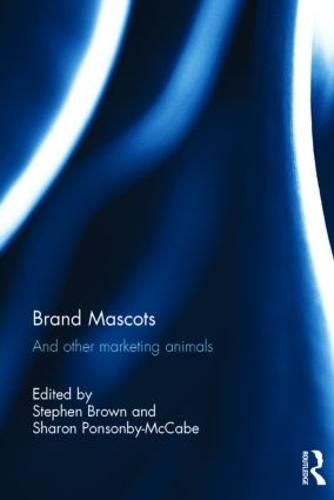Readings Newsletter
Become a Readings Member to make your shopping experience even easier.
Sign in or sign up for free!
You’re not far away from qualifying for FREE standard shipping within Australia
You’ve qualified for FREE standard shipping within Australia
The cart is loading…






Tony the Tiger. The Pillsbury Doughboy. The Michelin Man. The Playboy bunny. The list of brand mascots, spokes-characters, totems and logos goes on and on and on.
Mascots are one of the most widespread modes of marketing communication and one of the longest established. Yet, despite their ubiquity and utility, brand mascots seem to be held in comparatively low esteem by the corporate cognoscenti. This collection, the first of its kind, raises brand mascots’ standing, both in an academic sense and from a managerial perspective.
Featuring case studies and empirical analyses from around the world - here Hello Kitty, there Aleksandr Orlov, beyond that Angry Birds - the book presents the latest thinking on beast-based brands, broadly defined. Entirely qualitative in content, it represents a readable, reliable resource for marketing academics, marketing managers, marketing students and the consumer research community. It should also prove of interest to scholars in adjacent fields, such as cultural studies, media studies, organisation studies, anthropology, sociology, ethology and zoology.
$9.00 standard shipping within Australia
FREE standard shipping within Australia for orders over $100.00
Express & International shipping calculated at checkout
Stock availability can be subject to change without notice. We recommend calling the shop or contacting our online team to check availability of low stock items. Please see our Shopping Online page for more details.
Tony the Tiger. The Pillsbury Doughboy. The Michelin Man. The Playboy bunny. The list of brand mascots, spokes-characters, totems and logos goes on and on and on.
Mascots are one of the most widespread modes of marketing communication and one of the longest established. Yet, despite their ubiquity and utility, brand mascots seem to be held in comparatively low esteem by the corporate cognoscenti. This collection, the first of its kind, raises brand mascots’ standing, both in an academic sense and from a managerial perspective.
Featuring case studies and empirical analyses from around the world - here Hello Kitty, there Aleksandr Orlov, beyond that Angry Birds - the book presents the latest thinking on beast-based brands, broadly defined. Entirely qualitative in content, it represents a readable, reliable resource for marketing academics, marketing managers, marketing students and the consumer research community. It should also prove of interest to scholars in adjacent fields, such as cultural studies, media studies, organisation studies, anthropology, sociology, ethology and zoology.